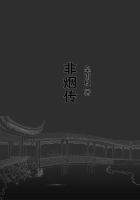It is not only ourselves that it concerns, but all whom we love or ever have loved, all our human brotherhood, as well as our whole idea of the Being who made us and the relation in which He stands to his creatures. In attempting to answer my correspondent's question, I shall no doubt repeat many things I have said before in different forms, on different occasions. This is no more than every clergyman does habitually, and it would be hard if I could not have the same license which the professional preacher enjoys so fully.
Number Five and I have occasionally talked on religious questions, and discovered many points of agreement in our views. Both of us grew up under the old "Orthodox " or Calvinistic system of belief.
Both of us accepted it in our early years as a part of our education.
Our experience is a common one. William Cullen Bryant says of himself, "The Calvinistic system of divinity I adopted of course, as I heard nothing else taught from the pulpit, and supposed it to be the accepted belief of the religious world." But it was not the "five points" which remained in the young poet's memory and shaped his higher life. It was the influence of his mother that left its permanent impression after the questions and answers of the Assembly's Catechi** had faded out, or remained in memory only as fossil survivors of an extinct or fast-disappearing theological formation. The important point for him, as for so many other children of Puritan descent, was not his father's creed, but his mother's character, precepts, and example. "She was a person," he says, "of excellent practical sense, of a quick and sensitive moral judgment, and had no patience with any form of deceit or duplicity.
Her prompt condemnation of injustice, even in those instances in which it is tolerated by the world, made a strong impression upon me in early life; and if, in the discussion of public questions, I have in my riper age endeavored to keep in view the great rule of right without much regard to persons, it has been owing in a great degree to the force of her example, which taught me never to countenance a wrong because others did."
I have quoted this passage because it was an experience not wholly unlike my own, and in certain respects like that of Number Five. To grow up in a narrow creed and to grow out of it is a tremendous trial of one's nature. There is always a bond of fellowship between those who have been through such an ordeal.
The experiences we have had in common naturally lead us to talk over the theological questions which at this time are constantly presenting themselves to the public, not only in the books and papers expressly devoted to that class of subjects, but in many of the newspapers and popular periodicals, from the weeklies to the quarterlies. The pulpit used to lay down the law to the pews; at the present time, it is of more consequence what the pews think than what the minister does, for the obvious reason that the pews can change their minister, and often do, whereas the minister cannot change the pews, or can do so only to a very limited extent. The preacher's garment is cut according to the pattern of that of the hearers, for the most part. Thirty years ago, when I was writing on theological subjects, I came in for a very pretty share of abuse, such as it was the fashion of that day, at least in certain quarters, to bestow upon those who were outside of the high-walled enclosures in which many persons; not naturally unamiable or exclusive, found themselves imprisoned. Since that time what changes have taken place! Who will believe that a well-behaved and reputable citizen could have been denounced as a "moral parricide," because he attacked some of the doctrines in which he was supposed to have been brought up? A single thought should have prevented the masked theologian who abused his incognito from using such libellous language.
Much, and in many families most, of the religious teaching of children is committed to the mother. The experience of William Cullen Bryant, which I have related in his own words, is that of many New England children. Now, the sternest dogmas that ever came from a soul cramped or palsied by an obsolete creed become wonderfully softened in passing between the lips of a mother. The cruel doctrine at which all but case-hardened "professionals" shudder cones out, as she teaches and illustrates it, as unlike its original as the milk which a peasant mother gives her babe is unlike the coarse food which furnishes her nourishment. The virus of a cursing creed is rendered comparatively harmless by the time it reaches the young sinner in the nursery. Its effects fall as far short of what might have been expected from its virulence as the pearly vaccine vesicle falls short of the terrors of the confluent small-pox. Controversialists should therefore be careful (for their own sakes, for they hurt nobody so much as themselves) how they use such terms as "parricide" as characterizing those who do not agree in all points with the fathers whom or whose memory they honor and venerate. They might with as much propriety call them matricides, if they did not agree with the milder teachings of their mothers. I can imagine Jonathan Edwards in the nursery with his three-year-old child upon his knee. The child looks up to his face and says to him,--"Papa, nurse tells me that you say God hates me worse than He hates one of those horrid ugly snakes that crawl all round. Does God hate me so?"
"Alas! my child, it is but too true. So long as you are out of Christ you are as a viper, and worse than a viper, in his sight."
By and by, Mrs. Edwards, one of the loveliest of women and sweetest of mothers, comes into the nursery. The child is crying.
"What is the matter, my darling?"
" Papa has been telling me that God hates me worse than a snake."
Poor, gentle, poetical, sensitive, spiritual, almost celestial Mrs.















